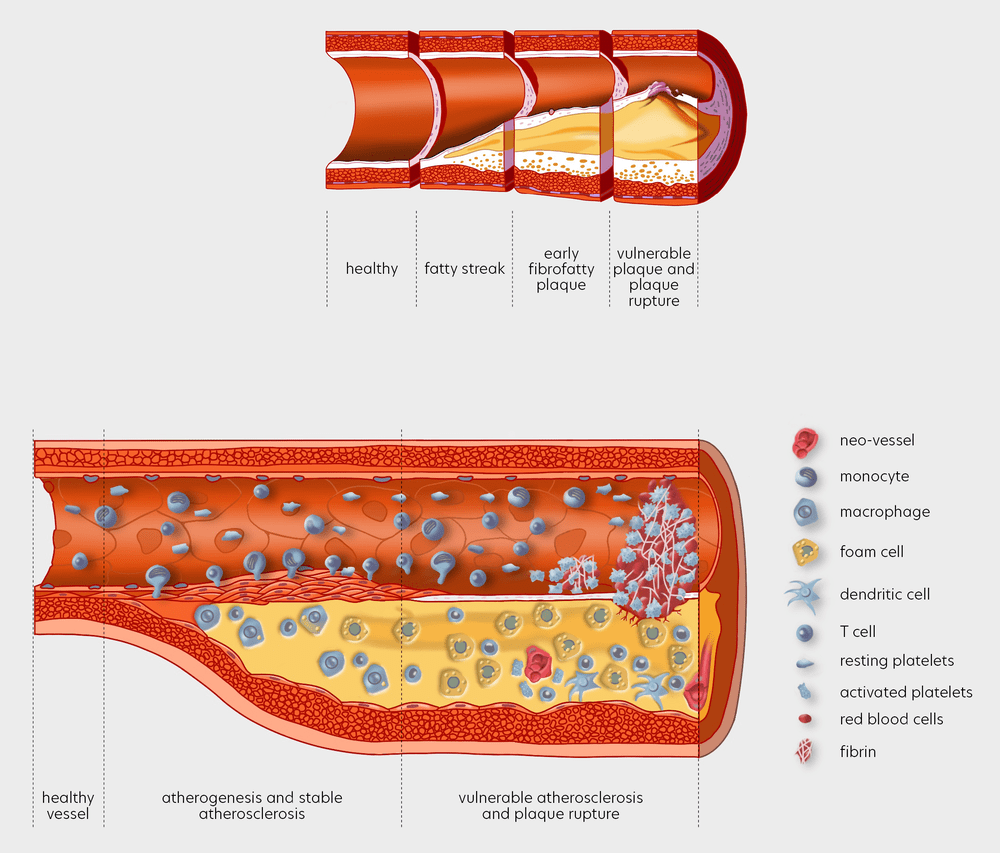
Recent Breakthroughs in Halting the Formation of Atherosclerotic Plaques
Title
Recent Breakthroughs in Halting the Formation of Atherosclerotic Plaques
Author
1. Mansi Vaghela,
Student, Carl von Ossietzy University of Oldenburg, Germany
2. Nihal Verma,
Student, Carl von Ossietzy University of Oldenburg, Germany
Abstract
Chronic
atherosclerosis causes plaque to accumulate in arterial walls, raising the risk
of heart disease. Significant progress has been achieved in reducing this
buildup using prescription drugs, surgery, and lifestyle changes. Plaque
development may be lowered by eating a diet high in veggies, fruit, and cereal
grains, exercising often, and giving up drinking. These drugs, which are often
used to lower cholesterol, are useful in avoiding the accumulation of plaque.
The goal of vascular endovascular procedures like stent implantation alongside
catheterization is to physically clear plaque coming from arteries. Novel
surgical approaches are also being explored, including as atherectomy surgery,
a catheter-based approach to plaque removal. The treatment of dyslipidemia and
its related cardiovascular problems has been improved as a result of these
developments in plaque clearance.
Keywords
Conclusion
In summary,
the buildup of fat and cholesterol inside the arterial walls is the hallmark of
plaque buildup, a chronic heart condition. The management and prevention of
cardiovascular diseases (CVD) depend on a comprehension of the many molecular
mechanisms behind plaque formation, including inflammatory processes, lipid
accumulation, impaired endothelial function, and smooth muscles cell
stimulation. Effective therapeutics for atherosclerosis need a detailed
understanding of the mechanisms behind plaque formation and destabilising.
For managing patients and therapeutic recommendations, sophisticated diagnostic methods for plaque evaluation are essential. Deepening our knowledge of the processes behind plaque development and stability is the goal of future research in plaque biology. Through the identification of novel targets for pharmaceutical therapy, this study will result in novel methods to the treatment and prevention of CVD. In order to effectively manage atherosclerosis, it is still essential that diagnostic technology for plaque assessment continue to advance. Understanding plaque biology is essential to successful cardiovascular disease prevention and therapy, making it a crucial field of study for treating heart disease. Subsequent studies will explore these pathways in more detail in an effort to find novel treatments for atherosclerosis.
Author Contrubution
The author confirms sole responsibility for the following: study conception and design, data collection, analysis and interpretation of results, and manuscript preparation.
Funding
The authors did not receive any specific grants from funding agencies in the public, commercial, or non-profit sectors for the research, authorship, and/or publication of this article.
Conflict of Interest
All authors declare that they have no conflicts of interest.
Data Sharing Statement
Not applicable
Software And Tools Use
Not applicable
Acknowledgements
I thank the following individuals for their expertise and assistance in all aspects of our study and for their help in writing the manuscript. I am also grateful for the insightful comments given by anonymous peer reviewers. Everyone's generosity and expertise have improved this study in myriad ways and saved me from many errors.
Corresponding Author
Mansi Vaghela
Carl von Ossietzy University of Oldenburg, Student, Germany
Nihal Verma
Carl von Ossietzy University of Oldenburg, Student, Germany
Copyright
Copyright: ©2026 Corresponding Author. This is an open access article distributed under the terms of the Creative Commons Attribution License , which permits unrestricted use, distribution, and reproduction in any medium, provided the original author and source are credited.
Vaghela, Mansi, and Verma, Nihal. “Recent Breakthroughs in Halting the Formation of Atherosclerotic Plaques.” Scientific Research Journal of Biology and Life Science, vol. 1, no. 2, 2023, pp. 16-20, https://isrdo.org/journal/SRJBL/currentissue/recent-breakthroughs-in-halting-the-formation-of-atherosclerotic-plaques
Vaghela, M., & Verma, N. (2023). Recent Breakthroughs in Halting the Formation of Atherosclerotic Plaques. Scientific Research Journal of Biology and Life Science, 1(2), 16-20. https://isrdo.org/journal/SRJBL/currentissue/recent-breakthroughs-in-halting-the-formation-of-atherosclerotic-plaques
Vaghela Mansi and Verma Nihal, Recent Breakthroughs in Halting the Formation of Atherosclerotic Plaques, Scientific Research Journal of Biology and Life Science 1, no. 2(2023): 16-20, https://isrdo.org/journal/SRJBL/currentissue/recent-breakthroughs-in-halting-the-formation-of-atherosclerotic-plaques
1612
Total words688
Unique Words66
Sentence21.939393939394
Avg Sentence Length0.29582251082251
Subjectivity0.061590909090909
PolarityText Statistics
Viewed / Downloads
Total article views: 121 (including HTML, PDF, and XML)| HTML | XML | Total | |
|---|---|---|---|
| 73 | 27 | 21 | 121 |
Viewed (geographical distribution)
Thereof 121 with geography defined and 0 with unknown origin.